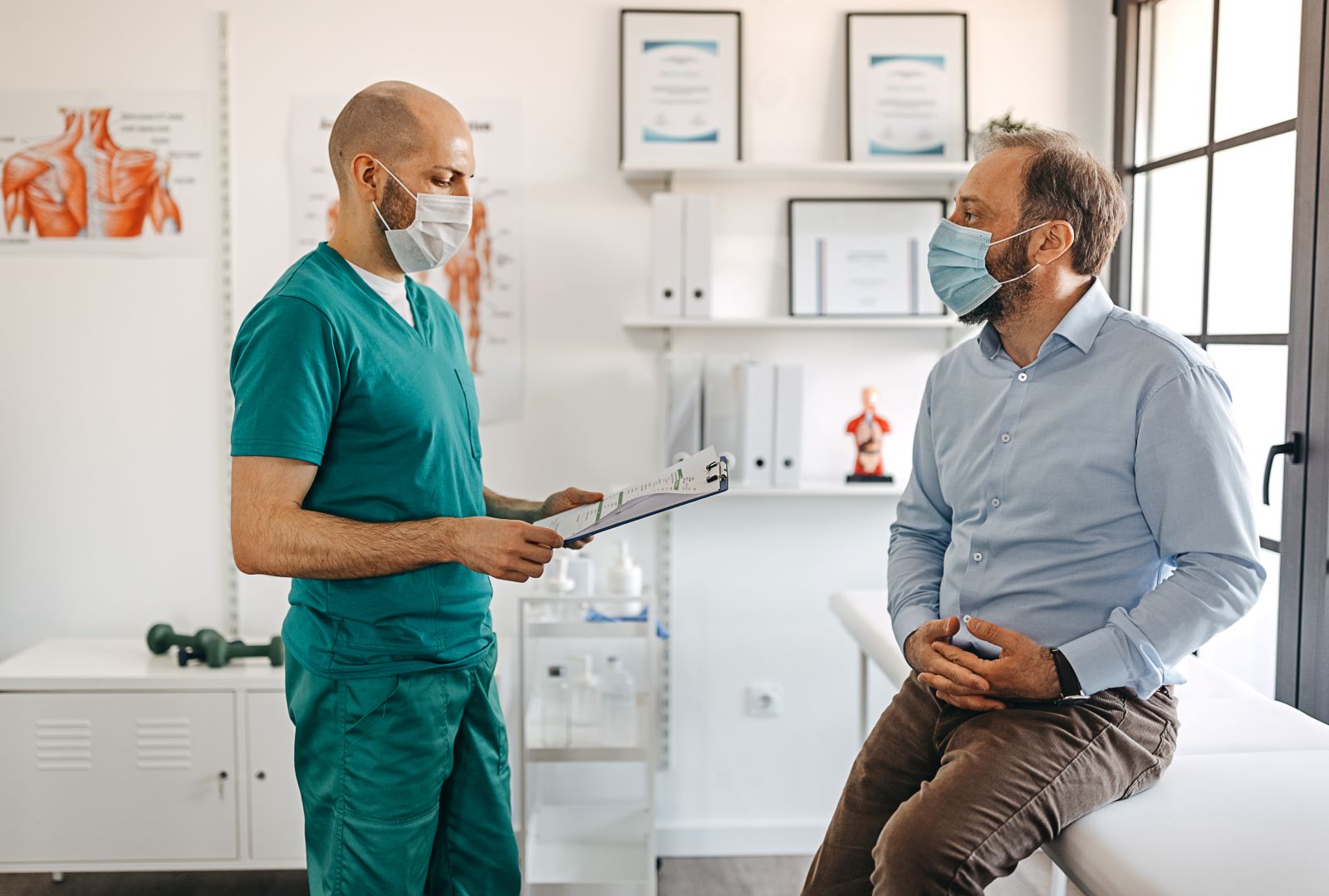<< Back
Have You Been Avoiding That Annual Screening? Here’s Why You Should Go

July 07, 2022
No one wants to think about health concerns or aging, but skipping your annual screening is not the solution.
A national study done in May showed that one third of men do not think they need annual health screenings. In addition, 65 percent believe they are healthier than others, and 40 percent get their medical information and advice from social media.
“I think there are a few reasons for this,” said Ardit Shehu, DO, a primary care provider with Tallwood Men’s Health, part of Hartford HealthCare. “I think the majority of it boils down to a lack of knowledge surrounding the goals of preventive care, leading them to emphasize routine screenings and appointments less.”
Dr. Shehu said other patients are concerned about what they might find through an annual screening, or they are concerned about the cost of routine care or the cost of missing work for an appointment.
“I often hear the phrase ‘if it is not broke, do not fix it,’ which can be a dangerous mentality as it can lead to catching disease at a very late and untreatable stage,” he said.
Routine care, he explained, is centered on preventing disease and catching non-preventable diseases at an early stage when they are most successfully treated. Preventive care includes vaccinations, blood pressure monitoring that can spot hypertension which can lead to cardiovascular disease, and blood tests to identify prediabetes that can be addressed before it leads to diabetes.
The other significant risk with failing to maintain routine care is not catching disease early. For men, the most common example, Dr. Shehu said, is the screening for prostate cancer.
“We have had several patients who had not seen a doctor for decades present with complete inability to urinate and found to have late stage prostate cancer that is more difficult to treat,” he said.
If spotted early on routine screening, prostate cancer is easier to treat and less invasive, causing fewer side effects during treatment. Tallwood Men’s Health, Dr. Shehu said, was created to offer men one place to access care for a variety of conditions. He can refer his patients for follow-up with urologists, weight loss specialists, endocrinologists, cardiologists and other specialists all in one place.
“We have a well-rounded team to ensure that no patient is lost in today’s complex medical system,” Dr. Shehu said.
Routine care, he added, is “absolutely essential” as people age.
“Our risk factors for disease increase significantly with age,” he said, using a car analogy when talking to his male friends about healthcare. “I always say that the more miles on the car, the more likely something is to break, making routine maintenance extremely important with age.”
For those who resist appointments, he suggested discussing the reasons why so they can be addressed. Women can help the men in their lives by listening without judgment, making appointments for them and even accompanying them to the appointment to provide support.
“I believe our health is our most important asset. I encourage people to be as open as possible with their physician to ensure they get the best possible care, and to stay on top of routine care to prevent serious illness,” Dr. Shehu said.